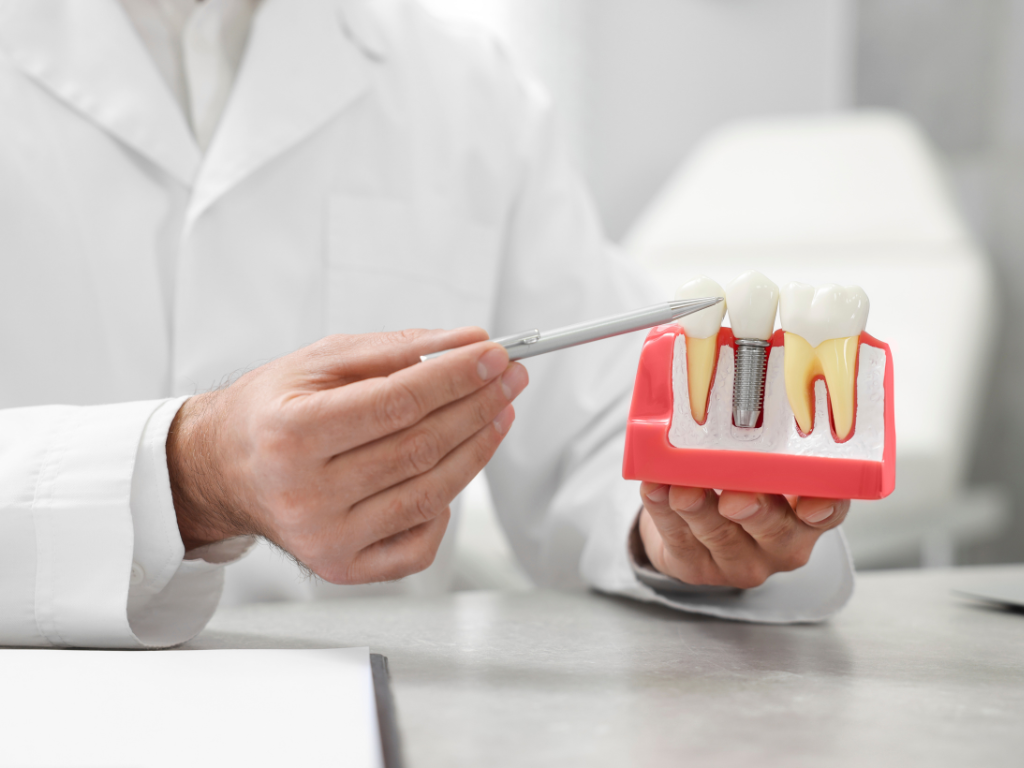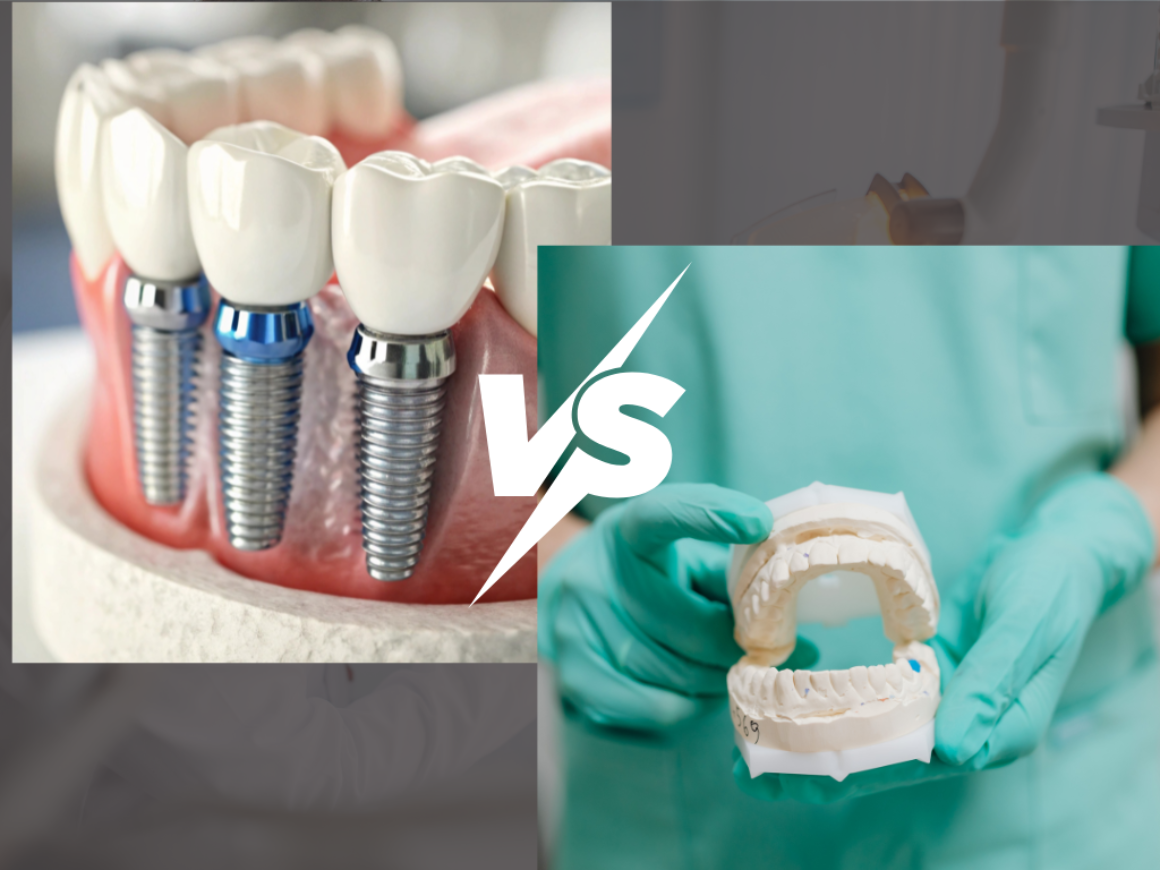Your Comprehensive Guide to Restoring, Enhancing, and Perfecting Your Smile in Richmond Hill.
Premise: Losing a tooth, having multiple missing teeth, or simply desiring a cosmetic enhancement can significantly impact one’s quality of life, affecting everything from eating and speaking to self-confidence. The landscape of modern dentistry offers a variety of advanced solutions, each with its unique benefits and considerations. For residents of Richmond Hill seeking to restore functionality or achieve their dream smile, understanding the differences between popular options like dental implants, dentures, and veneers is paramount. This article aims to demystify these treatments, providing a detailed comparison to help you make an informed decision alongside your dental professional.
Introduction: A healthy, beautiful smile is more than just an aesthetic asset; it’s fundamental to your overall well-being, influencing how you interact with the world and enjoy everyday life. When faced with missing teeth or cosmetic imperfections, the array of available dental solutions can seem overwhelming. You might have heard of dental implants, traditional dentures, or cosmetic veneers, but understanding which option is truly the best fit for your specific needs, lifestyle, and budget requires a deeper dive. This comprehensive guide will explore the nuances of these three transformative dental treatments, highlighting their distinct advantages, ideal applications, and what to consider when choosing in Richmond Hill. Our goal is to empower you with the knowledge needed to engage in a productive conversation with your dentist at Smiles at Richmond Hill, ultimately guiding you toward the optimal choice for a confident and comfortable smile.
1. Understanding Dental Implants: The Gold Standard for Tooth Replacement
Dental implants are widely regarded as the most advanced and durable solution for replacing missing teeth. They consist of a small, screw-shaped post, typically made of titanium, which is surgically placed into the jawbone beneath the gum line. This post acts as an artificial tooth root, providing a strong foundation for a custom-made crown, bridge, or even a full arch of teeth. The key to their success lies in a process called osseointegration, where the implant fuses directly with the bone.
-
What are they best for?
-
Single Tooth Replacement: Ideal for replacing one missing tooth without affecting adjacent healthy teeth.
-
Multiple Tooth Replacement: Can support multiple crowns or a dental bridge when several teeth are missing.
-
Full Arch Restoration: All-on-4 or implant-supported dentures provide a stable and permanent solution for an entire arch of missing teeth.
-
Preserving Jawbone Health: Unlike other options, implants stimulate the jawbone, preventing bone loss that often occurs after tooth extraction.
-
2. Dentures: A Traditional and Affordable Solution for Missing Teeth
Dentures are removable appliances designed to replace multiple missing teeth and the surrounding gum tissue. They have been a long-standing solution in dentistry, offering a way to restore chewing function and aesthetics. Modern dentures are more comfortable and natural-looking than those of the past, though they still have certain limitations compared to fixed options.
-
Types of Dentures:
-
Complete Dentures: Used when all teeth in an arch are missing, sitting directly on the gums.
-
Partial Dentures: Utilized when some natural teeth remain, attaching to them for support.
-
Implant-Supported Dentures: A hybrid solution where dentures snap onto a few strategically placed implants, offering enhanced stability compared to traditional dentures.
-
Immediate Dentures: Placed immediately after teeth extraction, serving as a temporary solution during the healing process.
-
3. Veneers: The Cosmetic Powerhouse for Aesthetic Enhancement
Veneers are thin, custom-made shells, typically crafted from porcelain or resin composite material, designed to cover the front surface of teeth. Their primary purpose is to improve the appearance of teeth, addressing a wide range of cosmetic imperfections. It’s important to note that veneers are not a solution for missing teeth but rather an enhancement for existing ones.
-
Common Issues Veneers Address:
-
Discoloration: Permanently stained teeth that resist whitening treatments.
-
Chips and Cracks: Concealing minor damage to tooth enamel.
-
Gaps and Spacing: Closing small gaps between teeth for a more uniform smile.
-
Misalignment: Correcting slightly crooked or unevenly shaped teeth.
-
4. Longevity and Durability: A Key Differentiating Factor
When investing in your smile, understanding the lifespan of your chosen treatment is crucial. The durability varies significantly among implants, dentures, and veneers, directly impacting their long-term value and the frequency of replacements or repairs.
-
Dental Implants:
-
Lifespan: With proper care, dental implants can last a lifetime, making them the most durable option. The crown itself might need replacement after 10-15 years, but the implant post itself is permanent.
-
Material: Made from biocompatible titanium, which fuses with the jawbone, ensuring exceptional strength and stability.
-
Maintenance: Requires regular brushing, flossing, and routine dental checkups, just like natural teeth.
-
Resistance: Highly resistant to decay and gum disease, though the surrounding natural gums and teeth still require attention.
-
-
Dentures:
-
Lifespan: Typically need to be replaced or relined every 5-10 years. The supporting bone and gum tissue change over time, affecting the fit.
-
Material: Made from acrylic resin and sometimes metal, which can be less durable than natural teeth or implant materials.
-
Maintenance: Requires daily cleaning and removal, special denture cleaning solutions, and often professional relining to maintain fit.
-
Vulnerability: Can break or crack if dropped and may wear down with chewing over time.
-
-
Veneers:
-
Lifespan: Porcelain veneers generally last 10-15 years, while composite resin veneers may last 5-7 years before needing replacement.
-
Material: Porcelain is highly durable and stain-resistant; composite resin is less durable but can often be repaired.
-
Maintenance: Regular brushing and flossing are essential; avoiding biting on hard objects is recommended to prevent chipping.
-
Replacement: Although durable, veneers are not permanent and may need to be replaced due to chipping, cracking, or natural wear and tear.
-
5. Impact on Oral Health and Jawbone Preservation
Beyond aesthetics and function, the long-term health of your jawbone and surrounding oral structures is a critical consideration. Different treatments have varying impacts on bone density and overall oral hygiene.
-
Dental Implants:
-
Bone Stimulation: Uniquely stimulate the jawbone, preventing the bone loss (resorption) that naturally occurs after a tooth is extracted. This preserves facial structure and prevents a sunken appearance.
-
Adjacent Teeth: Do not require altering adjacent healthy teeth for support, unlike traditional bridges.
-
Gum Health: Proper placement and hygiene support healthy gum tissue around the implant.
-
Oral Hygiene: Allows for normal brushing and flossing, contributing to better overall oral hygiene.
-
-
Dentures:
-
Bone Loss: Do not prevent or stop jawbone resorption. Over time, the jawbone can shrink, leading to a poorer fit of the denture and changes in facial contours.
-
Gum Irritation: Can sometimes cause gum irritation or sores if not fitted properly or when food particles get trapped.
-
Cleaning Challenges: While removable for cleaning, they can still trap food and bacteria against the gums and remaining natural teeth, requiring diligent oral hygiene.
-
Impact on Remaining Teeth: Partial dentures can sometimes put strain on the natural teeth they anchor to, potentially leading to mobility or damage over time.
-
-
Veneers:
-
Minimal Tooth Preparation: Generally require a small amount of enamel removal, making the procedure irreversible for traditional veneers.
-
No Impact on Jawbone: Since veneers are a cosmetic solution for existing teeth, they do not impact jawbone density or health.
-
Gum Health: Do not typically affect gum health if properly placed and maintained, though improper placement can sometimes irritate gums.
-
Protection: Can offer some protection to the front surface of teeth, especially if they were previously chipped or worn.
-
6. Functionality and Comfort in Everyday Life
How a dental solution feels and performs during daily activities like eating, speaking, and smiling is a major factor in patient satisfaction. The stability and natural feel of each option vary significantly.
-
Dental Implants:
-
Natural Feel: Function almost identically to natural teeth, providing superior chewing power and a completely natural feel.
-
Stability: Fully integrated into the bone, they are incredibly stable and do not shift or slip.
-
Speech: No impact on speech; can even improve speech if missing teeth previously caused impediments.
-
Food Restrictions: No dietary restrictions; you can eat all your favorite foods with confidence.
-
-
Dentures:
-
Potential Slippage: Can occasionally slip, click, or feel less secure, especially when eating hard or sticky foods.
-
Chewing Efficiency: May reduce chewing efficiency compared to natural teeth or implants, leading to dietary adjustments.
-
Speech: May require an adjustment period for speaking clearly, and some words can be challenging.
-
Maintenance: Must be removed nightly for cleaning and to give gums a rest.
-
-
Veneers:
-
Enhanced Aesthetics: Significantly improve the appearance of the front teeth, boosting confidence.
-
Natural Feel: Once placed, they feel like natural teeth and do not interfere with eating or speaking.
-
Comfort: Generally very comfortable, as they are custom-made to fit precisely over the tooth surface.
-
No Functional Change (beyond aesthetics): Do not alter the biting force or overall chewing function, as they are purely cosmetic additions.
-
7. Treatment Process and Time Commitment
The journey to your new smile involves different stages and timelines depending on the chosen treatment. Understanding the process helps set realistic expectations.
-
Dental Implants:
-
Multi-Stage Process: Involves several steps over a few months: initial consultation, implant placement surgery, healing period (osseointegration, 3-6 months), and finally, abutment and crown placement.
-
Surgical Procedure: Requires a minor surgical procedure for implant placement, usually performed under local anesthesia.
-
Recovery: A recovery period after surgery is necessary, with minimal discomfort managed by medication.
-
Temporary Solutions: During the healing phase, temporary restorations may be used to maintain aesthetics and some function.
-
-
Dentures:
-
Fewer Appointments: Typically involves fewer appointments over a shorter period than implants, especially for complete dentures.
-
Impressions and Fittings: The process includes taking impressions, making wax models, and several fitting appointments to ensure a comfortable and accurate fit.
-
Adjustments: Initial adjustments are often needed after placement as the mouth adapts.
-
No Surgery (typically): No surgical procedure involved unless extractions are needed beforehand, or if opting for implant-supported dentures.
-
-
Veneers:
-
Quicker Process: Usually completed in two appointments after an initial consultation.
-
Tooth Preparation: The first appointment involves preparing the teeth (lightly buffing enamel) and taking impressions.
-
Temporary Veneers (Optional): Temporary veneers may be placed while the permanent ones are being fabricated.
-
Bonding: The second appointment involves bonding the custom-made veneers to the tooth surface.
-
8. Cost Considerations and Investment Value
The financial aspect is a significant factor for many patients. While initial costs vary, it’s also important to consider the long-term investment and potential future expenses.
-
Dental Implants:
-
Higher Initial Cost: Generally have the highest upfront cost due to the surgical procedure, materials, and multiple appointments.
-
Long-Term Value: Considered a long-term investment due to their durability and ability to prevent future dental issues and bone loss. Can be more cost-effective over a lifetime compared to repeated denture replacements.
-
Insurance Coverage: Coverage varies; some dental insurance plans may cover a portion of the implant cost.
-
Payment Plans: Many dental offices, including Smiles at Richmond Hill, offer flexible payment plans to make implants more accessible.
-
-
Dentures:
-
Lower Initial Cost: Typically the most affordable option upfront.
-
Recurring Costs: Incur recurring costs over time for relining, repairs, and eventual replacement every 5-10 years.
-
Material Costs: Costs vary depending on the materials used (e.g., acrylic vs. partial metal frameworks).
-
Insurance Coverage: Often covered, at least partially, by most dental insurance plans, and are a covered benefit under the Canadian Dental Care Program (CDCP).
-
-
Veneers:
-
Moderate to High Cost: The cost depends on the material (porcelain generally more expensive than composite) and the number of veneers.
-
Per-Tooth Basis: Priced per tooth, so the total cost depends on the extent of the smile makeover.
-
Longevity: Porcelain veneers offer a good return on investment due to their durability and aesthetic appeal over many years.
-
Insurance Coverage: Usually considered a cosmetic procedure, so dental insurance coverage is often limited or non-existent.
-
9. Eligibility and Candidacy Requirements
Not everyone is a candidate for every dental procedure. Specific health and oral conditions can influence which treatment options are viable.
-
Dental Implants:
-
Good Oral Health: Requires healthy gums and sufficient jawbone density to support the implant.
-
General Health: Good general health is important, as certain chronic conditions (e.g., uncontrolled diabetes) or medications can affect healing.
-
Non-Smoker Preferred: Smoking can significantly reduce the success rate of implants.
-
Bone Grafting: If bone density is insufficient, a bone grafting procedure may be necessary before implant placement.
-
-
Dentures:
-
Versatile: Suitable for most individuals who have lost multiple or all their teeth, regardless of jawbone density.
-
Gum Health: Requires healthy gum tissue, as dentures rest directly on the gums.
-
No Surgery: No specific surgical health requirements, making them accessible to a wider range of patients.
-
Adaptability: Patients must be able to adapt to wearing and caring for a removable appliance.
-
-
Veneers:
-
Healthy Teeth: Requires existing healthy teeth without extensive decay or gum disease.
-
Sufficient Enamel: Enough tooth enamel must be present for bonding (for traditional veneers).
-
Good Oral Hygiene: Patients must maintain excellent oral hygiene to ensure the longevity of their veneers.
-
No Severe Grinding: Not recommended for individuals with severe teeth grinding (bruxism) unless a night guard is worn, as veneers can chip or crack.
-
10. The Importance of Professional Consultation in Richmond Hill
The decision between dental implants, dentures, and veneers is highly personal and should never be made without the guidance of an experienced dental professional. A thorough examination and discussion of your individual needs are crucial.
-
Personalized Assessment:
-
Comprehensive Examination: A detailed assessment of your oral health, including X-rays and potentially 3D scans, to evaluate bone structure and overall dental condition.
-
Discussion of Goals: An in-depth conversation about your aesthetic desires, functional needs, lifestyle, and budget.
-
Medical History Review: A review of your general health and any medications you are taking, which could impact treatment options.
-
Customized Treatment Plan: Based on all factors, your dentist will recommend the most suitable treatment plan tailored specifically for you.
-
Conclusion:
Choosing the right dental solution – be it the enduring stability of dental implants, the traditional practicality of dentures, or the transformative cosmetic power of veneers – is a significant decision. Each option offers distinct advantages and caters to different needs, budgets, and oral health profiles. While dental implants stand out for their permanence and bone-preserving benefits, dentures remain a viable and affordable choice for widespread tooth loss, and veneers offer unparalleled cosmetic enhancement for existing teeth. For those in Richmond Hill, the most critical step is to schedule a comprehensive consultation with a trusted dental professional. At Smiles at Richmond Hill, our dedicated team is committed to guiding you through this process, providing personalized recommendations, and ensuring you achieve a healthy, functional, and beautiful smile that you can confidently wear for years to come.
Book Your Consultation Today!
Ready to discover which dental solution is right for you? Contact Smiles at Richmond Hill to schedule your personalized consultation. Our experienced team is here to answer your questions and help you achieve your smile goals.
Call: 905-884-3571 Email: smilesatrichmondhill@gmail.com Website: https://smilesatrichmondhill.com/
-
A1: Dental implants are permanent, surgically placed posts that integrate with your jawbone, acting like natural tooth roots and preventing bone loss. Dentures are removable appliances that sit on your gums and do not prevent jawbone resorption, often requiring replacement or relining every 5-10 years.




